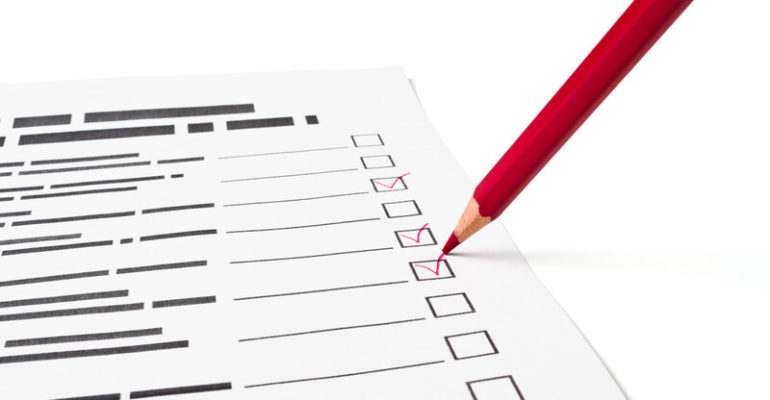The Use of Scales in Mental Health
We have written a series of articles on Supertherapists.
In the first one, entitled, Becoming a Supertherapist, some of the inquiries are related to success rates, the tools we use to evaluate success, and to measure our own progress, and that of our patients.
In our second article entitled, 7 Revelations to Becoming a Supertherapist, we discuss (1) how the best and most competent appraiser for our patients’ outcome is our patient, (2) how our patient’s assessment of us is not always accurate, and (3) how the assessment method used on our patients can make or break.
We also discuss how the best way to obtain the most accurate level of assessment of us from our patients is through the use of systematized measures. This may clearly show how part of the secret to becoming a Supertherapist lies in a mastery of understanding and using measures.
What is a measure?
A measure is a scale, and a scale can be defined as follows[1]:
- A system of ordered marks at fixed intervals used as a reference standard in measure
- A standard of measurement or judgment; a criterion
- A progressive classification, as of size, amount, importance, or rank
In healthcare, in general, and in the field of mental health, in particular, we have an overwhelmingly high number of scales. From measuring mood disorders[2] to measuring anxiety[3]; from measuring ADHD[4] to measuring personality type[5]; and from measuring suicide[6] to measuring violence[7]. Choosing among the high number of available choices can be rather daunting.
We might decide to solve this problem by choosing the best one for each scenario. But what does it mean to choose the best one? What criteria are used to determine whether this scale is better compared to that one? As a Supertherapist, we are going to make use of scales to obtain objective, valid, and reliable feedback from our patients. To ensure this is done well enough, let us go ahead and talk about scales. Let us start by looking at features or characteristics of what we consider to be the best possible scales. Many of them will be stated in different ways to facilitate the learning around this.
Features or Characteristics of What We Consider to be the Best Possible Scales:
We know a scale is an optimal one because:
- The optimal question is asked.
- The questions being used match the needs that are being sought to fulfill.
- The scale is practical to administer.
- The expenses related to administering and using the scale are low. This is in regard to time, money, and other types of resources.
- It is efficient to administer the scale.
- The scale is bias-free at its best.
- The scale truly measures what it claims to measure (test validity) (For example, the scores have appropriate correlations with the outcome variables as well as other scales).
- The scores are consistent when readministered to the same individual even under other circumstances (Test-retest reliability).
- The scores are consistent when readministered by a different clinician to the same individual even under other circumstances (inter-rater reliability).
- The norms are adequate and appropriate.
In subsequent articles, we are going to elaborate on the above features and characteristics of scales. This is because, as already mentioned, you are going to obtain feedback from your patients, the feedback needs to be valid and reliable, and for this, you will benefit from having a basic understanding of the psychometrics of scales.
While waiting for the next article on this series, here’s what you can do:
- Be one of the first 100 clinicians to send your thoughts and you may earn a free 6-month one-on-one coaching session with SWEET.
- Click below to register for one or more of our 12 series at SWEET. These series are designed to give you the skills you need in each and every single area of mental health:
-
- Neuroanatomy Made Simple
- Addiction Mental Health
- Spiritual Tools for Clinical Outcomes
- Geriatric Mental Health: 1st & 3rd Wednesday
- Ethics, Law, and Mental Health Series
- Speed Reading for Clinicians
- Medical First Aid for Clinicians
- Super Memory Skills for Clinicians
- Research Week for Clinicians
- Optimal Aging Series
- Child and Adolescent Mental Health Series
[1] Publishers, H. C. (n.d.). The American Heritage Dictionary entry: Scale. American Heritage Dictionary Entry: scale. Retrieved April 19, 2023, from https://ahdictionary.com/word/search.html?q=scale
[2] Mood disorder rating scales. NCMD. (n.d.). Retrieved April 19, 2023, from https://mood-disorders.co.uk/resources/rating-scales
[3] Julian LJ. Measures of anxiety: State-Trait Anxiety Inventory (STAI), Beck Anxiety Inventory (BAI), and Hospital Anxiety and Depression Scale-Anxiety (HADS-A). Arthritis Care Res (Hoboken). 2011 Nov;63 Suppl 11(0 11):S467-72. doi: 10.1002/acr.20561. PMID: 22588767; PMCID: PMC3879951.
[4] ADHD rating scales. ADHD Institute. (2022, January 18). Retrieved April 19, 2023, from https://adhd-institute.com/assessment-diagnosis/rating-scales/
[5] Nunes A, Limpo T, Lima CF, Castro SL. Short Scales for the Assessment of Personality Traits: Development and Validation of the Portuguese Ten-Item Personality Inventory (TIPI). Front Psychol. 2018 Apr 5;9:461. doi: 10.3389/fpsyg.2018.00461. PMID: 29674989; PMCID: PMC5895732.
[6] Ghasemi P, Shaghaghi A, Allahverdipour H. Measurement Scales of Suicidal Ideation and Attitudes: A Systematic Review Article. Health Promot Perspect. 2015 Oct 25;5(3):156-68. doi: 10.15171/hpp.2015.019. PMID: 26634193; PMCID: PMC4667258.
[7] Dahlberg LL, Toal SB, Swahn M, Behrens CB. Measuring Violence-Related Attitudes, Behaviors, and Influences Among Youths: A Compendium of Assessment Tools, 2nd ed., Atlanta, GA: Centers for Disease Control and Prevention, National Center for Injury Prevention and Control, 2005.









